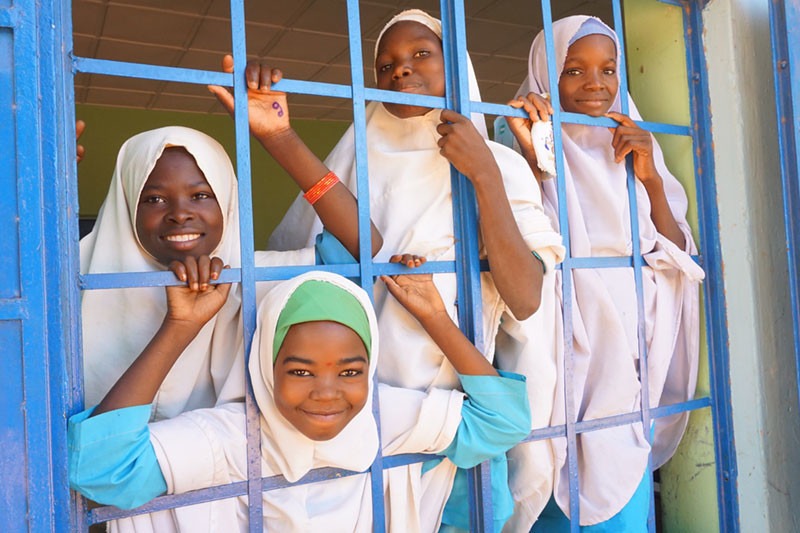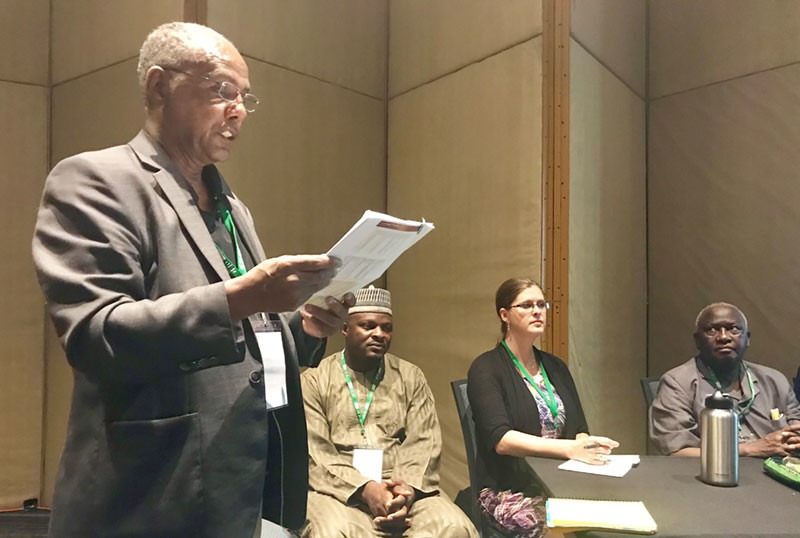MEXICO CITY — More than 30 percent of school-aged children in northern Nigeria do not have access to basic education. Lack of teacher motivation and parent support, paired with insufficient learning and teaching materials have contributed to this education gap.
An integrated approach is needed to achieve optimal reading outcomes and strengthen education systems in complex environments like Nigeria, said a panel of experts at the Comparative and International Education Society (CIES) conference on March 27.
“The lack of formal reading national policies in Nigeria has resulted in teachers who are unprepared to teach primary school curriculum and students who are unable to gain literacy skills,” said Creative Associates International’s Semere Solomon, Senior Director of Africa Strategy.
For Solomon, who manages an education project in Nigeria called the Northern Education Initiative Plus, this is where a “whole child, whole teacher, whole school and whole system” approach can make a difference.

In the panel session called “Pre-Service, In-Service and Policy Reform: A Three-Legged Stool for Improved and Sustained Early Grade Reading Outcomes,” Solomon said the Northern Education Initiative Plus project is witnessing positive change through a “packaged approach to increasing access and the quality of education.”
Effective community mobilization, literacy policy reform, multilevel government collaboration, improved learning and teaching materials and mentoring and coaching of teachers are all key ingredients in applying a sustainable, holistic approach, said Solomon, who served as the panel’s discussant.
Funded by the U.S. Agency for International Development, the Northern Education Initiative Plus is being implemented in formal and non-formal schools in Nigeria’s Sokoto and Bauchi states with the goal of improving reading skills for more than 2 million primary grade learners.
Creative implements the program in close partnership with Education Development Center, Florida State University and Overseas Strategic Consulting.
Now in the second of its five years, Northern Education Initiative Plus has developed a comprehensive program called Mu Karanta! (Let’s Read!) for helping students learn to read in Hausa, their mother tongue language, and then transition to English. The project has distributed more than 1.9 million reading materials to students and teachers. In all activities, government partners take the lead.
“Leadership of the project is in the hands of the federal, state and local officials,” said Solomon. “With constant collaboration and ongoing consultation, the Nigerian government is facilitating the process of strengthening the overall education system.”
The early grade reading project is creating a forum where all education counterparts can come together to address local problems using evidence-based research, he added.

Fostering better learning outcomes with policy
Representing the Northern Education Initiative Plus project with Semere Solomon, Bilyaminu Bello Inuwa, Hausa Reading and Standards Specialist, outlined the project’s reading policy development process.
“From the project’s Early Grade Reading Assessment, we found that more than 90 percent of children in Nigeria could not read a single word,” said Inuwa. “We pointed to that evidence when collaborating with the Nigerian government to design early grade reading policies.”
Leadership of the project is in the hands of the federal, state and local officials. With constant collaboration and ongoing consultation, the Nigerian government is facilitating the process of strengthening the overall education system.
Semere Solomon, Senior Director of Africa Strategy at Creative
To improve early grade reading outcomes, the project has facilitated a participatory process with policymakers to implement a policy mapping exercise, create three policy briefs and develop a road map for designing a National Reading Framework.
The three policy briefs –focused on the global best practices of reading programs often referred to as the “5 Ts” (Teaching, Time, Tongue, Text and Testing) – provide recommendations for improving early grade reading.
The close collaboration with the government on policy reform has proved to be effective.
“We have seen some key education shifts in Bauchi and Sokoto states,” said Inuwa. “After ongoing dialogue and presenting evidence, the Nigerian government agreed to amend the first to third grade school timetable from five to ten periods per week to language – both in Hausa and English.”
The former reading policy mandated only 30 minutes each week of language instruction and “that little amount of time is not going to take your kids anywhere,” said Inuwa.
For students to learn how to read, teachers must be proactive and provide adequate time for them to master the English language and their mother tongue language, he added.
He also emphasized that sustainable change to improve literacy education requires systemic action.
“Reading policies have to be in place in order to get consistent, sustained improvements in the delivery of an integrated early reading program, and improve the Nigerian educational system as whole,” he said.
Attending CIES?
To visit Creative’s CIES 2018 Special Report hub, click here. For a full schedule of Creative’s CIES 2018 panels, including panelists, times and locations, click here. In addition to the panel sessions, stop by booth 54 to engage with education experts and to learn more about Creative’s global projects. Follow us on Twitter @1977Creative for live updates.